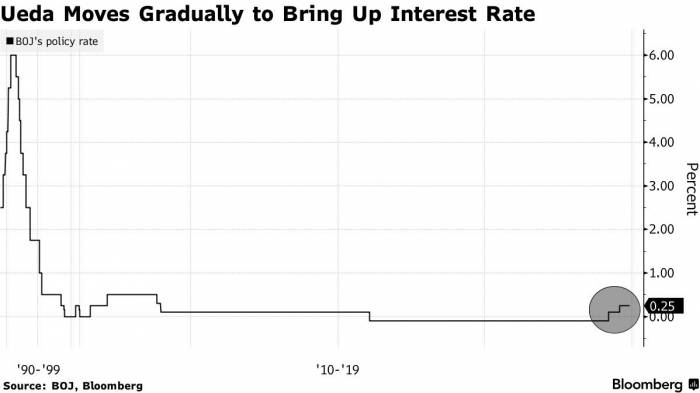Two years ago, a transformative work titled "The Almanack of Naval Ravikant: A Guide to Wealth and Happiness" made waves, featuring the philosophical musings of an Indian-American investor born in the 1970s. Fast forward two years, and another influential figure from the 1980s, Balaji Srinivasan, an Indian-American entrepreneur and investor, presents his own thoughts compiled by author Eric Jorgenson in "The Balaji Prophecy: A Guide to Technology, Truth, and Building the Future." This novel not only explores advice on innovation and entrepreneurship but serves as an entry point into the shifting mindset of Silicon Valley entrepreneurs.
Balaji and Naval share strikingly similar backgrounds; both are descendants of Indian immigrants, both grew up in New York City, passionate about reading, and both faced challenges in fitting in while being the only children of color in their classrooms. They ranked high in academia, oscillating between being model students and troublemakers, seen by teachers as unconventional. Their prestigious academic pathways laid the groundwork for their future successes, with Naval attending Dartmouth College and Balaji earning his PhD from Stanford University. However, before heading into Silicon Valley, Balaji stepped into academia, spending several years teaching.
If "The Almanack of Naval Ravikant" is akin to a self-help book, then "The Balaji Prophecy" reflects a particular school of thought prevalent among Silicon Valley tech philosophers regarding the future of business and society. The text posits the immutable truth of blockchain technology as a sought-after ideal of authenticity. Additionally, it proposes that integrating incentive mechanisms within workflows using cryptocurrencies like Bitcoin and Ethereum, alongside smart contracts to enhance collaboration, will define their envisioned work environment. Furthermore, the concept of a real-time data-driven, encrypted economy aims to curate a new economic landscape.
The Future of Media
In his analysis, Balaji argues that the traditional news media, often referred to as the "Fourth Estate," should not be taken for granted. He emphasizes that as traditional media holds tech companies accountable, it too must be subject to scrutiny. For instance, when Mark Zuckerberg is criticized by outlets such as The New York Times for wielding superior voting power over Meta, he suggests a similar examination of The New York Times' own family-run equity structure spanning generations. The Suzeberg family maintains control of the paper through a system passed down through four generations, which raises the question of trust: who garners more faith from the average person—the self-made entrepreneur or the entrenched familial overseer? The answer is not straightforward.
This does not mean that Balaji is championing Meta while downplaying the role of The New York Times. The queries regarding governance and oversight remain pivotal. Social media, now dubbed the "Fifth Estate," profoundly impacts the masses, driven heavily by an "eyeball economy" obsessed with likes and shares. Balaji astutely observes that while popularity can be quantified through likes, truth cannot be measured in the same manner. The sensationalism prompted by pursuing clicks often leads to misleading information—akin to sugary snacks that, when consumed as staples, can be detrimental to one’s health.
Utilizing the analogy of a nutritious diet versus an information diet, the importance of seeking truth and valuable information becomes all the more pronounced. "What you consume through your mouth reshapes your body, just as what you take in through your eyes and ears reshapes your mind," he asserts. Consequently, if the content delivered on social media is predominantly junk, it is difficult to envision an informed and healthy public consciousness.
After critiquing both traditional and social media, Balaji—an advocate for blockchain technology—proposes that decentralized media represents the future. He considers Twitter as a "first draft" of decentralized media, functioning as a mechanism for distributing attention. It's comparable to how Uber empowers riders to summon drivers: in this case, content distribution power is handed to the masses, where everyone can be a media provider. YouTube exemplifies a user-driven model of decentralized content creation and boasts an impressive revenue-sharing system. Users' payments form the primary income source for this decentralized creation, with subscriptions being just the initial step.
The ideal scenario, according to Balaji, involves assessing which actions the content incites, and how these actions translate into revenue for billing purposes. Many startups often emerge as a result of a single article's inspiration. If authors were granted equity in companies birthed from their work, it would radically shift the incentives for creators. Allowing influential authors to partake in the fruits of their impact is an ambitious concept, one that may only become feasible through blockchain and smart contracts.
From the angles of acknowledging authenticity and profit-sharing, Balaji asserts that blockchain will become the historical "first draft" since future news will rely on event information flowing into a globally accessible blockchain. This leads to his second significant argument: the elevation of cryptocurrencies.
Cryptocurrency is Not Gold
Balaji's advocacy for cryptocurrency stems from more than mere financial speculation. He criticizes those who treat cryptocurrencies as just another asset class, likening this belief to saying the internet is merely another media channel. Such a viewpoint, he argues, illustrates a misunderstanding of programmability, permissionlessness, or peer-to-peer concepts while overestimating the stability of traditional institutions.
He draws a compelling parallel between the evolution of the internet and the potential of cryptocurrencies, noting that the internet didn't merely alter media; it birthed new forms of communication. Social media, short videos, and podcasts have emerged as novel creatures birthed from the internet's fertile ground.
In light of this, defining cryptocurrencies solely as reserve assets like gold or transactional currencies like the dollar drastically narrows the imagination for what the future holds. Balaji insists that cryptocurrencies transcend merely being vessels of value; they encompass transactions of financial assets like stocks, bonds, and commodities, while also creating entirely new asset categories.
"Cryptocurrency is turning the world into investors, just as the internet turned it into publishers." This radical prediction highlights Balaji's focus: it isn't merely about Bitcoin's price reaching record highs but whether cryptocurrencies can fuel decentralized financial innovation.
Innovative potential extends beyond financial boundaries. Just as Balaji predicts that future news will stem from event-driven information flows, traditional institutions will face replacement by decentralized alternatives. For instance, Columbia Journalism School may be supplanted by a cryptocurrency-based information flow, and Yale Law School by smart contracts. Law firms may standardize contracts while leveraging legal APIs to substantially reduce legal expenses.
The "New Frontier" Understood by the Global Tech Class
Silicon Valley's dominant ideology promotes techno-optimism, which Balaji subscribes to. He posits that the fundamental tenet of technological philosophy believes the next problem is solvable. The narrative of technology is one of 'useful arts,' whereas the narrative of politics is one of power preservation. This dichotomy encapsulates Silicon Valley's perspective on governance.
This spirit of innovation sprang from the advent of the internet, which Balaji regards as a new frontier, melding Silicon Valley entrepreneurs with the foundational ethos of America: "The internet is to America what the Americas once were to the British—a vast frontier." This frontier signifies a pathway for ambitious individuals to seek wealth while simultaneously acting as a crucible for social experimentation. Without a frontier, all pursuits devolve into zero-sum games.
As new immigrants, figures like Balaji and Elon Musk represent an emergent global technological elite born out of the internet's iteration. Their combined voices shed light on why Musk and a host of Silicon Valley entrepreneurs display frustration toward the cumbersome American government. "When people stop taking risks and succumb to a moribund system, systemic risks will emerge." This sentiment reflects their greatest fears and elucidates why Musk consistently champions the idea of efficiency and downsizing.
This also signifies how the global tech elite envisages change: rather than engaging in endless debates, they aim to construct alternative solutions. When traditional institutions appear irreparable, they advocate for the establishment of superior organizations to replace them.
In the last part of "The Balaji Prophecy," Balaji poses a thought-provoking question to readers regarding the kind of America they prefer to inhabit. He presents three options: option one, to reside in a real yet digitized America; option two, to experience the real America devoid of the internet; and option three, to exist solely in a digitized America while physically residing outside of the United States.
Assuming that the ideal realm of the global tech elite resides within a digital version of America, the real America stands as the territory they desire to transform. However, if forced to choose between a purely digital America or merely experiencing the tangible America without its digital counterpart, Balaji suggests an inclination towards option three over option two.
This brings us to the revolutionary ideas of libertarian figures like Peter Thiel, who envisions constructing a "high-tech utopia" via floating cities in oceans. Concurrently, Balaji, in his book "The Network State," muses over how to create a nation governed by new technologies. This undercurrent among the global tech elite is clear: the allure of the United States lies in its potential for innovation; a lapse in creativity may render America a place devoid of significance.
Ultimately, Musk extends this vision, aiming to reshape the tangible America, actualizing the dreams of the global tech elite. While this pioneering vision collides with reality and might devolve into a failed social experiment overshadowed by power struggles, it undeniably sparks excitement.






























Comments